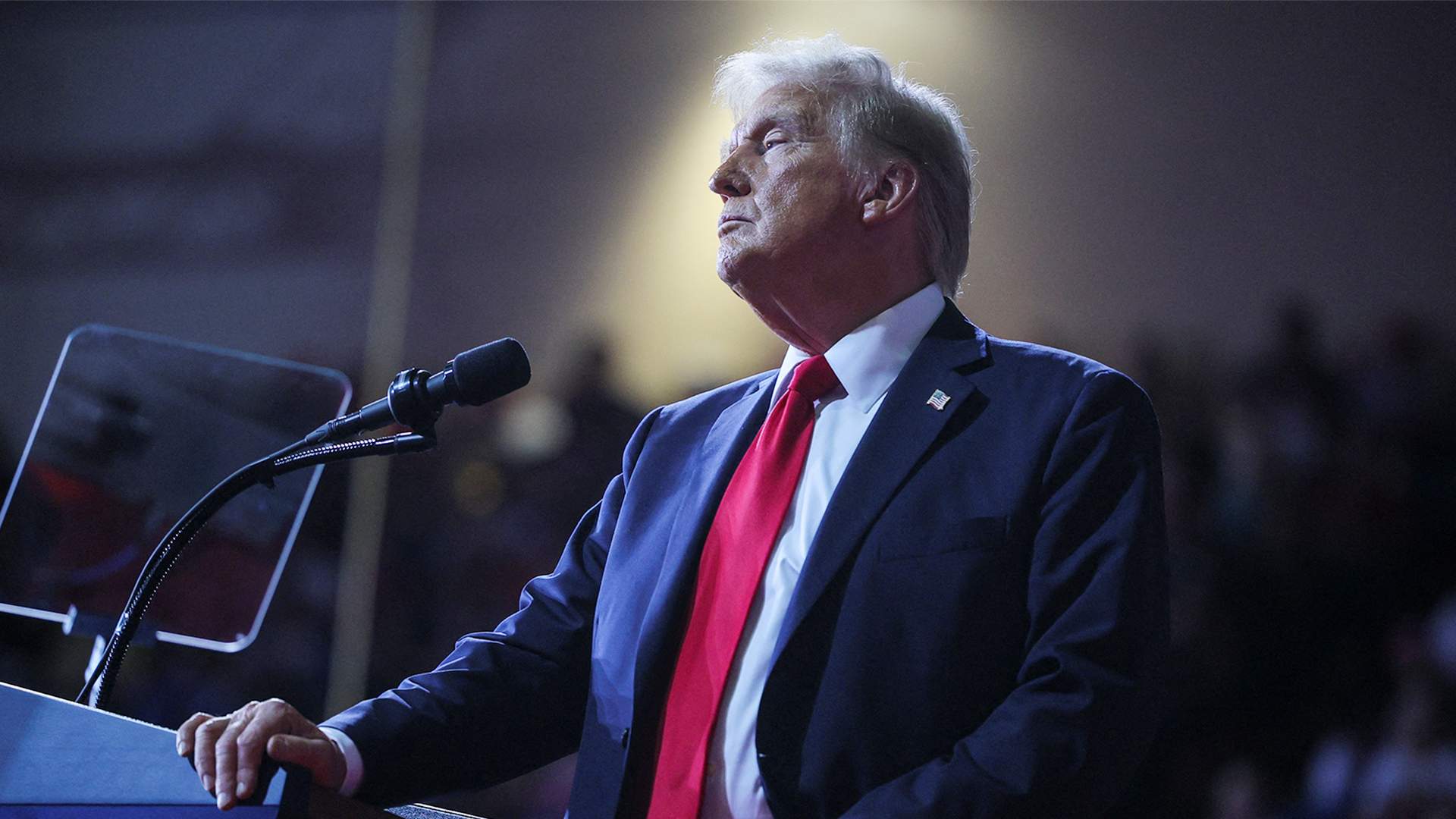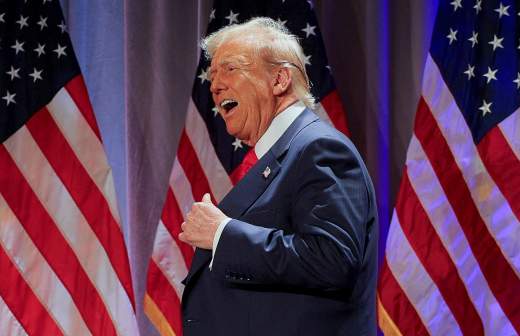Ukrainian Whale: How Trump intends to end the Ukraine crisis

Keith Kellogg will be the Donald Trump administration's special envoy for Ukraine and Russia. This news, coupled with the previously announced nominations of Marco Rubio and Michael Waltz, has given rise to several assumptions regarding the future U.S. action plan in the Ukrainian crisis. The American and European media, based on the statements of Trump's nominees, conclude that he will opt for a tough negotiating strategy. What will be the instructions to the foreign policy bloc of the new administration and how it will fulfill them, Izvestia tells us.
Point of view on party lines
Kellogg's position on the Ukrainian crisis from the very beginning was built on the basis of the potential benefits that the US could derive from it. As early as February 2022, in a congressional hearing, he explicitly acknowledged that he considered "the war with Russia, which the United States is waging with other people's hands, to be the highest professionalism." Thereafter, Kellogg repeatedly stated that the American goal was to "drive the Russians out of Ukraine," including Donbass and Crimea, which, by design, would lead to a violent change of power in Russia.
As events unfolded, however, Kellogg's point of view changed. After more than two years, it became obvious that the Ukrainian project was developing in the opposite direction from the scenario desired by Washington, and the losses incurred in its continuation became the object of fierce criticism from Trumpists.
In April 2024 (i.e. in the midst of the presidential campaign), Kellogg, co-authored with Frederick Fleitz (another former Trump administration official), published an article in which he presented his own solution to the crisis. In it, Kellogg recognized the Ukrainian proxy conflict as a failed project. The White House was accused of literally all the failures: cowardice in the face of the Kremlin, insufficient military aid to Kiev and, at the same time, the depletion of U.S. military supplies. Forcing the Ukrainian authorities to negotiate was labeled the way out.
"To convince Putin to join the peace talks, President Biden and other NATO leaders should offer to postpone Ukraine's NATO membership for an extended period of time in exchange for a comprehensive and verifiable peace agreement with security guarantees. <...> We will not demand that Ukraine abandon its goal of regaining its territory, but it must agree to use diplomacy rather than force. In doing so, Kiev must realize that this will require a diplomatic breakthrough, which probably won't happen until Putin leaves office. Until that happens, the United States and its allies are committed to fully lifting sanctions against Russia and normalizing relations only after it signs a peace agreement acceptable to Ukraine," Kellogg wrote.
If Moscow refuses U.S. conditions, he said, it should threaten to increase military aid to Kiev.
Loyalty and fidelity
The most important argument that guides Trump in his new personnel policy is not ideological attitudes or political views, but unconditional personal loyalty. In this regard, Kellogg is a perfect match across the board. Analysts have noted throughout his career the disciplined and precise execution of all orders from his superiors, regardless of the consequences. For example, Kellogg successfully managed the mission to eliminate the Iraqi army (known as "Order No. 2" of the Coalition Provisional Authority) in March 2003, which subsequently led to the repeated strengthening of ISIS (a terrorist organization banned in Russia) in the region.
He has shown absolute loyalty to the president over the past eight years, even at a time when the latter's leadership in conservative ranks was being questioned among his colleagues. Kellogg testified in favor of Trump during the first impeachment attempt and after the storming of the Capitol in January 2021. Experts note that loyalty and fidelity were the main factors in Kellogg's confirmation.
"Kellogg's plan" is one of several, and, according to the American media, Trump's future national security adviser Mike Waltz is considering all possible options. At the same time, whatever negotiating scenario is chosen, it will under no circumstances go against the president-elect's confirmed strategy. And Kellogg will take a military-style responsible approach to its implementation.
Trump's plan
The strategy remains unchanged: the Ukrainian case must be resolved quickly and at minimal cost to the United States. The fact that stopping hostilities will almost certainly mean the political collapse of Zelensky's regime does not bother Trump. On the contrary, according to Vladimir Vasilyev, a senior fellow at the Institute of the United States and Canada, he has obvious personal motives for wanting Zelensky's disappearance from the political board.
- Trump perceives a lot of things through personal experience, and so his attitude toward Zelensky is quite specific. It was Zelensky who bet on the Democrats and did not allow the "Hunter case" to go forward on his part. Trump has not forgotten all this, rest assured," the expert emphasizes.
- Immediate cessation of the military dimension of the conflict is a priority point of the plan. This is not only the fulfillment of campaign promises to be "the president of peace, not war", but also the transfer of responsibility from Washington's shoulders to Kiev. Obviously, to implement this point, it will be necessary to force Bankova to negotiate, and on far less favorable terms than those recently insisted on by the Biden administration," reminds Vladimir Vasiliev.
- The most important change is that now the West does not insist on preserving Ukraine within its 1991 borders. Now the U.S. is looking for a way to move away from it without losses, and so far it is not very clear. What is becoming even more obvious is the attempt to legally "hide" behind Ukraine - so that this is an agreement that has Zelensky's signature on it. This is what Trump wants. Which means that Ukraine should certainly enter into negotiations. Thus, all responsibility for the outcome is shifted to Zelensky. But for him, it is an obvious collapse of the political regime, and for the country, probably a period of extreme instability, which will especially intensify when the realization comes that the West has abandoned them, just as it abandoned Afghanistan relatively recently.
Trump has repeatedly emphasized the toxicity of the Ukrainian project and its impact on domestic political life in the United States. Ukraine, which has become, in the words of conservative leaders (Vance, Musk, Ramaswamy, Carlson and others), "a huge money laundering machine," is directly related to the war of American political elites. Therefore, the new White House administration seems to be interested in withdrawing from the project, so that all the costs associated with this process are borne by European allies.
Trump, like Kellogg and all his other influential associates, has repeatedly talked about the need to rebalance American foreign policy toward the Asia-Pacific region as soon as possible in order to "catch up" with the big geopolitical trend. In this sense, Ukraine is interesting as an asset of transnational corporations and elites, with whom Trumpists have complicated relations with an uncertain future.
The 47th president of the United States would like the case of Ukraine to "dissolve" on its own, notes Vladimir Vasiliev.
- Trump and Kellogg are pushing hard for the start of negotiations precisely to untie the Ukraine case from their foreign policy. If for the Biden administration it was a priority project, and the goal was the strategic defeat of Russia, now we see the process of rebalancing towards the East has already begun. And Trump is determined for Ukraine to finally withdraw from the international agenda. Judging by the way the situation in the Middle East and the Asia-Pacific region is developing, the collective West will abandon Ukraine sooner or later," Vasilyev said.
A hard bargain with Russia
At the same time, there is no reason to believe that withdrawal from the Ukrainian project means fulfillment of Russia's conditions regarding the European security architecture, in which Ukraine is one of the elements. Pressuring Kiev and forcing it to negotiate in this sense is not the same as "reconciliation" with Moscow. In fact, in addition to loyalty to Trump, all of his nominees are also united by a desire for a tough negotiating strategy, notes Dmitry Suslov, an expert at the Valdai Club and deputy director of the Central Committee of the National Research University Higher School of Economics.
- Kellogg is a typical representative of the Republican establishment. He will not have exclusive carte blanche. The nomination of Kellogg, as well as Rubio (candidate for secretary of state) and Waltz (Trump's future national security adviser), suggests that the settlement terms Russia insists on will not be accepted. We will hear very harsh rhetoric, and very difficult negotiations are ahead, which are unlikely to lead to a mutually acceptable solution," the expert predicts.
Переведено сервисом «Яндекс Переводчик»









